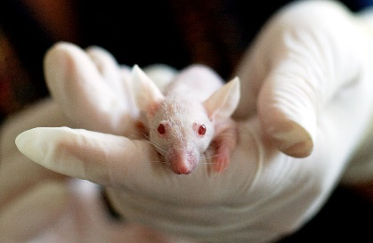Efficiently delivers antibody drugs into the brain and succeeded in demonstrating the suppression of amyloid β aggregation in brain parenchyma at lower doses in Alzheimer-type dementia model mice.
Designed and synthesized smart nanomachine® that efficiently delivers antibody drugs into the brain and succeeded in demonstrating the suppression of amyloid β aggregation in brain parenchyma at lower doses in Alzheimer-type dementia model mice.

Dr. Kazunori Kataoka, Director General, iCONM, Dr. Kouhei Tsumoto, Professor, University of Tokyo Dr. Yasutaka Anraku, Visiting Scientist, iCONM / Project Associate Professor, The University of Tokyo, Dr. Takanori Yokota, Professor, Tokyo Medical and Dental University and their research group designed and synthesized smart nanomachine® that efficiently deliver antibody drugs into the brain and succeeded in demonstrating the suppression of amyloid β aggregation in brain parenchyma at lower doses in Alzheimer-type dementia model mice, and a joint press conference was held.
At the press briefing held online on Wednesday, May 20, Dr. Kazunori Kataoka, Director General, iCONM, Dr. Kouhei Tsumoto, Professor, Department of Bioengineering, Graduate School of Engineering, The University of Tokyo, Dr. Yasutaka Anraku, Project Associate Professor, Department of Bioengineering, Graduate School of Engineering, The University of Tokyo Department of Bioengineering, and Dr. Takanori Yokota, Professor, Department of Neurology and Neurological Science, Tokyo Medical and Dental University had a deep discussions with journalists from science section of the general paper and bio journal magazines.
We plan to commercialize this research results.
In the current situation where many clinical trials of antibody drugs for Alzheimer-type dementia have failed, the cause is that the amount of drug that can pentrate the blood-brain barrier is only 0.1% of the dose, and the effect on the central nervous system is a way to increase the dose to strengthen it, but in that case, there was a concern of side effects, which was one of the obstacles to practical use.
However, based on the results of this research, it is expected that the antibody will be fragmented and encapsulated in nanomicelles and administered, as an effective delivery technology for antibody drugs into the brain.

[Reference] News Release of Nano Medical Innovation Website
https://iconm.kawasaki-net.ne.jp/news20200520.html
(Title:Succeeded in molecular design and synthesis of Smart Nanomachine®, which efficiently delivers antibody drugs into the brain, and succeeded in demonstrating inhibition of amyloid β aggregation in brain parenchyma at low doses in Alzheimer-type dementia model mice)
[Reference] News日経BP社 Beyond Health Article
https://project.nikkeibp.co.jp/behealth/atcl/feature/00004/052600180/
[Reference]July 7, 2020 Nikkei Shimbun “Dementia treatment with micromachines: Efficient drug delivery to brain cells”
A related article was published in the Nikkei newspaper. The background and future development of this matter are mentioned
Article URL:https://www.nikkei.com/article/DGXMZO61220780W0A700C2XY0000/
[Reference] May 22, 2020 Chemical Daily,
“Intracranial Delivery Technology for Antibody Drugs: Suppression of Dementia at Low Dose, Nano Medical Center, etc.”
[Reference] September 8, 2020 Nikkan Kogyo Shimbun “Delivery of antibody drugs to the brain Utilization of” micelle “technology: Possibility of minimally invasive drugs”
There was a mention of the application of our antibody drug to DDS. For details, please refer to the relevant article.
